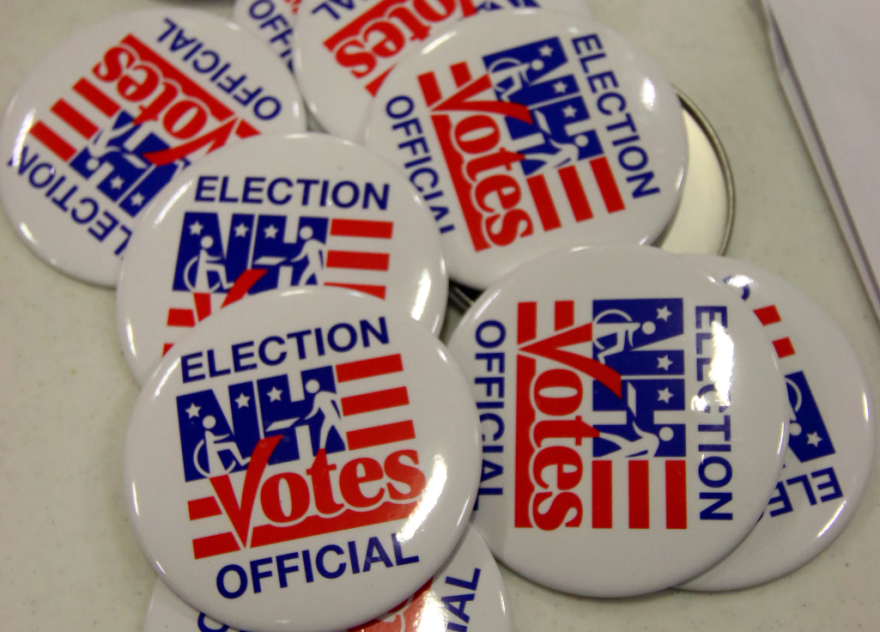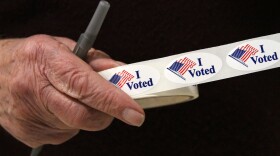In an effort to improve transparency around our coverage, NHPR is here to answer your questions about how we cover the news.
Morning Edition Host Rick Ganley spoke with NHPR's News Director Dan Barrick about how we're planning to cover this election season, and what we're doing to earn your trust as a listener.
If you have questions about NHPR's election coverage, please send us an email at elections@nhpr.org or fill out our survey here. We'd like to hear from you about what you'd like see from our coverage and how you think we could do better.
Rick Ganley: First, can you tell us what the newsroom's mission for our election coverage in 2020 is? How might that be different than, say, what we might hear from NPR or some other local news sources here in New Hampshire?
Dan Barrick: Well, at the heart of what we're trying to do this year is really put the concerns, and interests and voices of the public at the center of our coverage and use it as a real source for how and what we do, the journalism that we produce. It's kind of the continuation of an approach we took in the 2020 primary, really trying to reach out to the public, both folks who listen to NHPR and those beyond that, to really understand what's on people's minds. What do they want to hear from the candidates, and what real questions do they have just about the political process, the electoral process?
We're doing that in a number of ways. So one big thing, folks may have seen this, is we've created a number of surveys where we're essentially just asking people what's on your mind? What do you want to know about? What are you confused about during this election? And our goal there is to produce reporting and coverage that is practical and useful in a way, in part driven this election by the fact that this is such an unusual, unprecedented campaign season with the pandemic changing the way elections are being administered.
Rick Ganley: We're really trying to give people, as you said, news that they can really use. And a lot of people I know have concerns about bias in journalism. Obviously, that's always been a big concern, but we hear about this constantly now. How are you helping the producers, the reporters, people like me, hosts here, to kind of address their own biases as we cover stories about the election?
Dan Barrick: Well, that is certainly something that we talk about, and think about and incorporate into our editorial planning constantly. A big part of that is in the editorial process itself. From the moment that a story idea is pitched through the editing process, through the reporting process, the writing, the production process, usually, you know, more than two or three folks, editor, reporters, producer, are talking about what perspective is missing from this story. What assumptions are we making in this story that we're blind to? Who is the intended audience for this piece? That's on the front end and then on the back end, after the piece is out there, we're trying to address these questions by being receptive and taking seriously feedback, and pushback and criticism we get from the public. And using that, holding that up against the original story and seeing if it's a valid critique. We're incorporating that criticism into the next round so that we're trying to learn from that.
Rick Ganley: Well, Dan, can you talk about some of those editorial decisions? About, first off, story selection, how you decide to cover something, and then how you decide to write about it, produce it, how it gets to air, which races to cover? Can you take us through that process?
Dan Barrick: Sure. The temptation in news is very strong on a day-to-day basis to be driven, especially in political and campaign reporting, to be driven by the candidates. Who had the press conference today. What did they say? Who attacked who? Who's up in the polls? That is reporting that is easy and quick to produce, but it's often quite hollow. It doesn't really give voters much. It treats politics like a sporting event with winners and losers and who's up and who's down. So we try and avoid that, get around that in our story selection by really putting, as I said earlier, the concerns of the public at the heart of our editorial process. What do people need to know to be better informed, to better navigate the system?
When it comes to particular races, we are a statewide news organization, but we're also a relatively small newsroom and our resources are limited. So we try and focus on those races that will have the greatest effect on the most number of people. And when we do decide to cover something that's maybe a lower ballot race, we're looking for opportunities where we can help explain a broader policy or political issue to people that transcends that, that might speak to a broader statewide audience.
Read and listen to more of NHPR's 2020 political coverage and subscribe to Primarily Politics, NHPR's weekly political newsletter.









